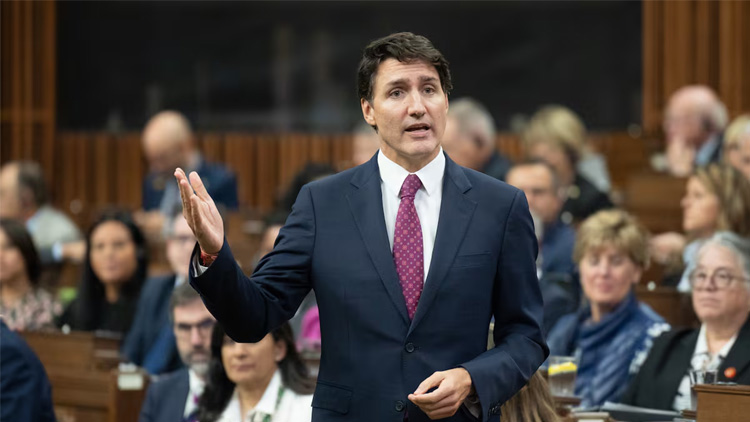Canada announces reduction in immigration intake as public concern rises
The Canadian government has announced a reduction of over 18% in the number of permanent residents (PRs) to be accepted next year. The announcement was outlined in the 2025–27 Immigration Levels Plan released on Thursday.
Compared to the plan unveiled last November, the intake numbers issued by Immigration, Refugees and Citizenship Canada (IRCC) will see a decrease from the proposed 500,000 PRs in 2025 to the revised figure of 395,000. Similarly for 2026, the number is being reduced from 500,000 to 380,000. The target for 2027 is 365,000. The number of PRs to be issued this year was 485,000.
This will be the first time the Government of Prime Minister Justin Trudeau will cut PR numbers since it came to power in 2015. Making the announcing in Ottawa, Trudeau acknowledged his government’s failure on this score, as he said, “In the tumultuous times, as we emerged from the (Covid-19) pandemic, between addressing labour needs and maintaining population growth, we didn’t get the balance quite right. With the plan we’re announcing today, along with previously announced measures, we’re making our immigration system work better.”
In a post on X, he added, “We’re going to significantly reduce the number of immigrants coming to Canada for the next two years. This is temporary — to pause our population growth and let our economy catch up.”
The measure came as public opinion turned sharply against high levels of immigration instituted by the Trudeau government.
“In response to the evolving needs of our country, this transitional levels plan alleviates pressures on housing, infrastructure and social services so that over the long term we can grow our economic and social prosperity through immigration,” a statement from IRCC noted.
The new levels plan is expected to result in a marginal population decline of 0.2% in both 2025 and 2026 before returning to growth of 0.8% in 2027.
It also forecast reducing temporary resident volumes, which includes international students, to 5% of Canada’s population by the end of 2026.
The announcement was made by Prime Minister Justin Trudeau, who posted on X, “We’re going to have fewer temporary foreign workers in Canada. We’re bringing in stricter rules for companies to prove why they can’t hire Canadian workers first.”
Minister of Immigration, Refugees and Citizenship Marc Miller said, “While it’s clear our economy needs newcomers, we see the pressures facing our country, and we must adapt our policies accordingly. These changes will make immigration work for our country so that everyone has access to the quality jobs, homes and supports they need to thrive. We have listened to Canadians, and we will continue to protect the integrity of our system and grow our population responsibly.”
A poll by the agency Environics Institute earlier this month stated that for “the first time in a quarter century, a clear majority of Canadians say there is too much immigration, with this view strengthening considerably for the second consecutive year”.
The survey showed that 58% of respondents felt “believe the country accepts too many immigrants”, reflecting a 14 percentage point increase since 2023, building on a 17-point increase over the previous year (2022 to 2023).
“This is the most rapid change over a two-year period since Focus Canada began asking this question in 1977, and reflects the largest proportion of Canadians who say there is too much immigration since 1998. The latest findings suggest the balance of public opinion about the volume of immigration currently being admitted into the country has effectively flipped from being acceptable (if not valuable) to problematic,” it added.
Among those who will be most impacted will be prospective PRs from India as they form the largest national cohort in this immigration category. In 2023, of the 471,810 PRs granted, 139785, or nearly 30%, were from India.
Those numbers have escalated sharply since Trudeau became PM in 2015, when the total PRs accepted was just 271,840 including 39,340, or 14.4%, from India.
This will also reflect a major course correction for the government. In November 2023, it announced it would not increase the intake of PRs beginning from 2026, the first time levels in this category were not enhanced since Trudeau came into power.

